When I first began exploring the world of campers, I quickly realized that understanding camper weight is crucial for a safe and enjoyable experience. As an RV enthusiast, it’s essential to know the weight of your camper and how it can impact factors like towing capacity, fuel efficiency, and overall safety. You can confidently embark on any adventure without unnecessary stress or worry by learning the ins and outs of your camper’s weight, including its dry weight and gross vehicle weight rating (GVWR).
Key Takeaways
Knowing your camper’s weight is essential for several reasons. Firstly, it ensures compliance with legal weight limits for road safety, as exceeding them can lead to fines or accidents. Secondly, understanding the weight helps select the right towing vehicle, as each vehicle has a maximum towing capacity for safe operation. Thirdly, knowing the camper’s weight aids in efficiently packing and distributing cargo, preventing overloading, and maintaining vehicle balance.
Additionally, it is vital for calculating fuel efficiency, as heavier loads can significantly impact fuel consumption. Lastly, awareness of the camper’s weight is crucial for the proper setup and use of hitch systems, enhancing overall towing stability and safety.
Determining Your Camper’s Weight
Understanding GVWR
When it comes to understanding your camper’s weight, it’s essential to start with the Gross Vehicle Weight Rating (GVWR). This is the maximum weight a camper can carry, including its own weight, passengers, cargo, and any additional equipment. Knowing the GVWR can help you avoid overloading your camper and potentially damaging it or creating an unsafe driving situation. My knowledge of different RV and camper brands, such as Airstream and Winnebago, allows me to provide more accurate information on their respective GVWRs.
Calculating Dry Weight
Another important aspect of your camper’s weight is its dry weight. This refers to the weight of the camper without any passengers, cargo, or liquids such as water and fuel. Dry weight is important because it provides a baseline to help determine how much additional weight your camper can safely carry. Additionally, it helps give information on the various RV classes, which can help you choose the best camper for your needs. Keep in mind that dry weight may not account for some materials used in theconstruction of the camper, like Azdel or Luan for the walls.
Weighing Loaded Campers
To get an accurate weight of your fully-loaded camper, it’s important to weigh it on a scale that can support the total weight. Scales can be found at truck stops, storage facilities, and RV resorts. When weighing, ensure you have everything loaded as it would be for a trip to get the most accurate result.
To make it easier for you to keep track of the weights, use the table below:
| Weight Type | Description |
|---|---|
| Dry Weight | The weight of the camper without any passengers, cargo, or liquids. |
| GVWR | The maximum weight the camper can safely carry, including its own weight, passengers, cargo, and any additional equipment. |
| Loaded Weight | The actual weight of the camper when it’s fully loaded for a trip, including passengers, cargo, and liquids. |
Weighing your camper, understanding the GVWR, and calculating the dry weight all play a role in safely operating your camper. By properly managing these weight factors, you can avoid potential issues, create a safer experience, and maintain the longevity of your camper. Make sure to also research different RV manufacturers to compare their weight specifications and features.
Implications of Excess Weight
Impact on Vehicle Performance
Excess weight can have a significant impact on your camper’s performance. For instance, it may lead to increased fuel consumption and strain on the engine, transmission, and braking system. As a result, this can potentially lead to mechanical failures and compromised safety on the road.
Having a heavy camper can also negatively affect your camper’s stability, making it more challenging to maneuver and park. To avoid performance issues, always be mindful of the weight limitations of your camper and the towing vehicle.
Safety Risks
An overweight camper presents various safety risks for you and other drivers on the road. It can cause tire blowouts since tires wear out more quickly under excessive weight. Additionally, it also makes it harder to stop the vehicle, which could lead to accidents.
To mitigate safety risks, consider reducing the load in your camper, properly distribute the weight, and regularly check your tires for signs of wear. Proper maintenance of your camper, including addressing leaks, can also help prevent additional weight from water damage.
Legal and Insurance Issues
Overweight campers can also lead to legal and insurance issues. Exceeding the weight limit of your camper or towing vehicle may result in fines or penalties in some regions. If you’re involved in an accident caused by your camper’s excessive weight, you may be held liable, impacting your insurance rates.
Moreover, if your insurance company finds out you were driving an overweight camper, they might refuse to cover damages or even cancel your policy. It is crucial to understand the limits set by both your vehicle’s manufacturer and your insurance provider.
By being aware of the implications of excess weight and taking the necessary precautions to maintain your camper within the recommended limits, you can ensure a safe and enjoyable camping experience. Additionally, investing time in camper maintenance, such as managing your RV water heater or cleaning your black tank, can also help prevent any unwanted complications on your journey.
Managing Your Camper’s Weight
Proper Load Distribution
To ensure safe and efficient travels with your camper, it’s crucial to distribute the load correctly. A balanced load helps maintain stability and can even improve fuel-efficiency. I recommend re-weighing your camper periodically, especially before long trips, to account for any changes in cargo and passenger weight 1. To prevent instability, avoid placing heavy items on one side or at the very front or rear of your camper.
Reducing Unnecessary Weight
Shedding unnecessary weight can have a significant impact on your camper’s performance and fuel consumption. Start by evaluating the items you bring on each trip and determine which are essential and which can be left behind. For example, instead of bringing a full toolbox, take only the tools you’re likely to need for the specific trip. Opt for lightweight options when selecting gear, such as canvas chairs instead of bulky armchairs, or collapsible cookware.
Keeping track of your onboard water supply is also crucial, as a filled water tank can add considerable weight to your camper 2. If you’re camping at a site with water hook-ups, consider bringing only enough water for transit and filling up the tank once you’ve arrived.
Upgrades and Modifications
If you’re looking to minimize your camper’s weight further, consider exploring upgrades and modifications. Replacing older, heavier appliances with newer, more lightweight options can make a substantial difference. Opting for lighter flooring or cabinetry materials can also be beneficial.
Another modification worth considering is lowering a trailer’s height so it can fit in your garage 3. This change may make storage more convenient and protect your camper from weather-related damage when not in use.
Remember that it’s essential to take proper care of your camper to maintain its appearance and performance. Regularly checking and applying the appropriate lubricants for your RV awning 4 helps prevent damage and increase its longevity.
In conclusion, managing your camper’s weight is an essential aspect of RV life. Understanding and optimizing your camper’s load distribution and implementing weight-saving measures can lead to a safer, more enjoyable, and more fuel-efficient camping experience.


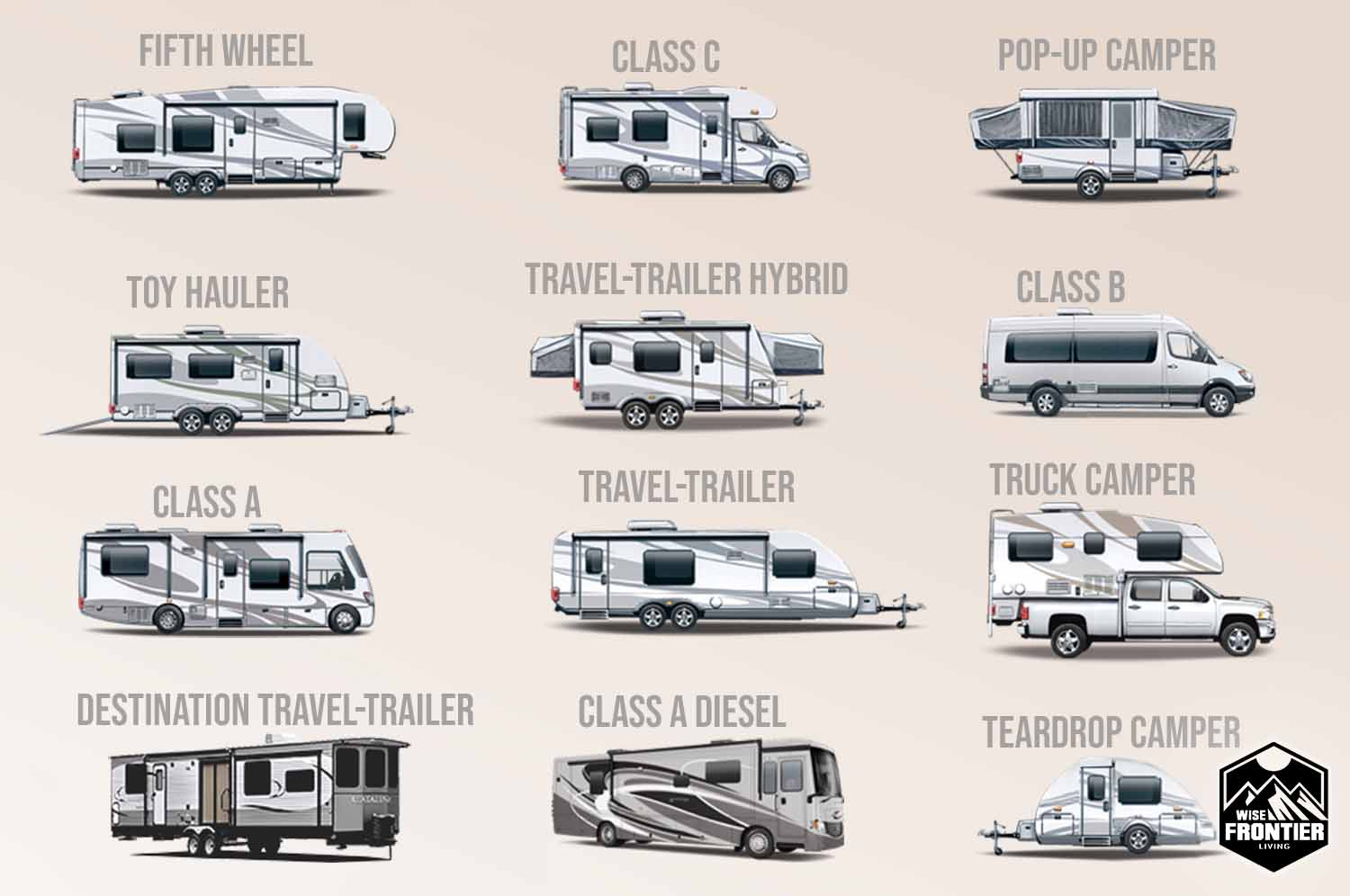

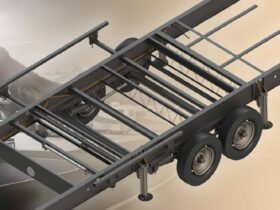

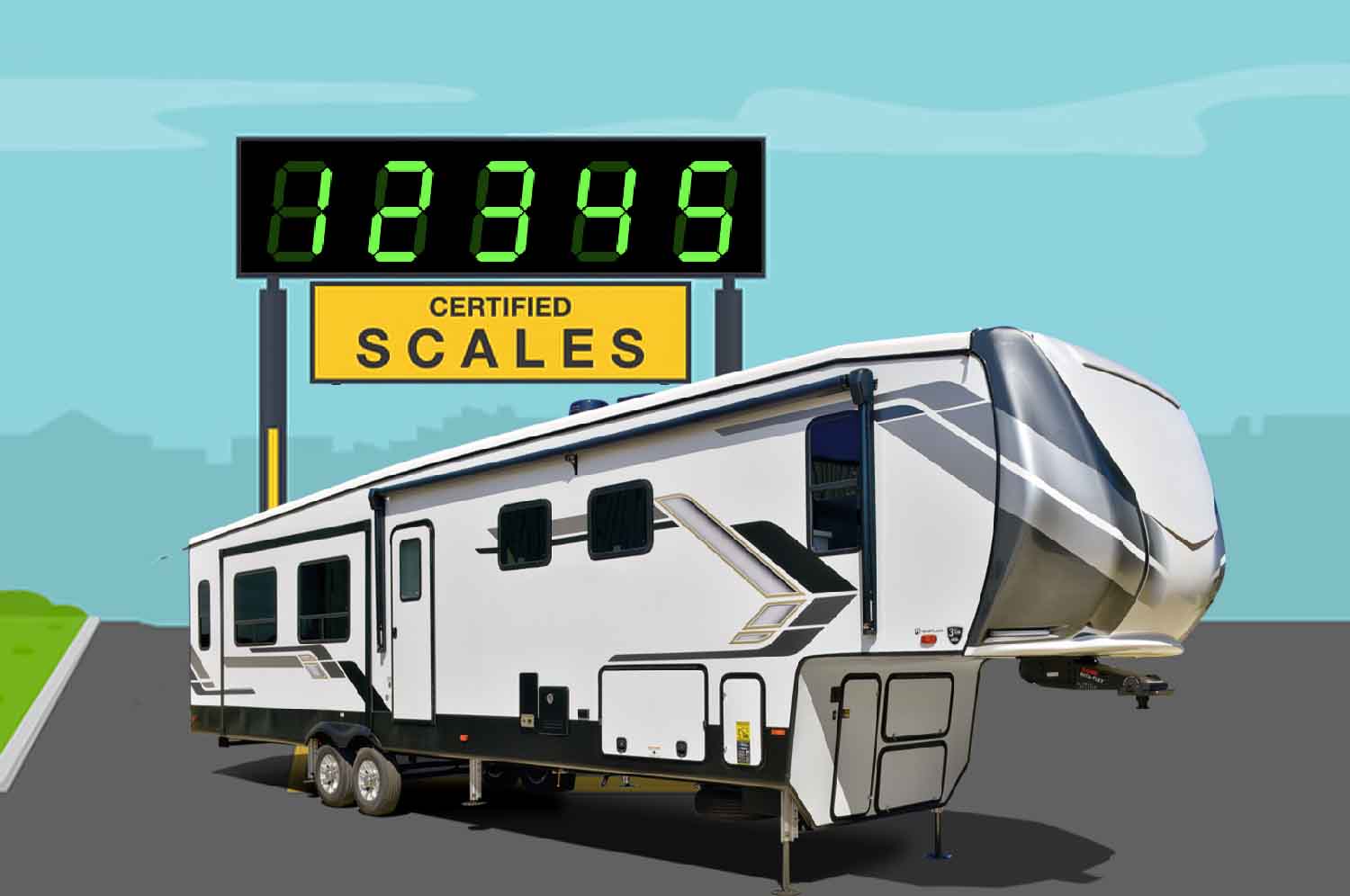


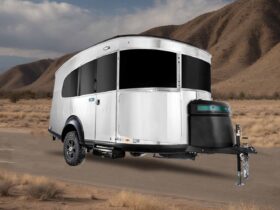


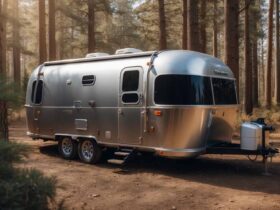
Leave a Reply